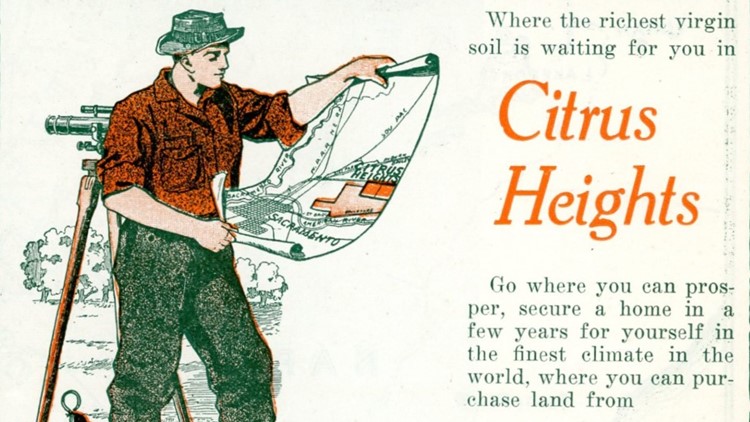CITRUS HEIGHTS, Calif. — The city of Citrus Heights turned 25 in January but has had its name since 1910.
The area Citrus Heights is today was once slated to be named Sylvan, which means wooded, because there were lots of oak trees in the area, according to Larry Fritz, president of the Citrus Heights Historical Society. This is why older buildings within the city are named Sylvan, like the Sylvan Oaks Library, Sylvan Middle School or even the Sylvan Parks neighborhood.
But in the early 1900s, a man named Walter Trainer decided it wasn't marketable enough of a name and decided to change it when he began buying up acres of land.
At the time citrus fruits were easy to grow, were cheap to produce and sold for good profit. Trainer bought large parcels of land, divided them up and called the development Citrus Heights to encourage people to farm on the land he sold.
A flash freeze in 1932 killed all the citrus plants and made residents switch over to crops that could withstand the cold, like olives and almonds, Fritz said.
The city wasn't incorporated until 1997 but not for lack of trying. Incorporation efforts happened multiple times over many decades to separate Citrus Heights from the overall Sacramento County.
"Sacramento County fought incorporation tooth and nail... The county would take a hit financially, especially if (Citrus Heights) took Sunrise Mall," said Fritz. "We were a cash cow for them."
What brought people to Citrus Heights?
Fritz says Citrus Heights was a shortcut from Sacramento to the gold mines.
"Miners would travel through what we now call Auburn Boulevard," Fritz said. "There were way stations, miles houses, stopping stations for teamsters to spend the night, get food and drink. Back then, it was a two-day journey from Sacramento to Auburn."
As the gold began to fade, people stayed in the area. They bought up land from Trainer-Desmond in parcels 120 to 600 acres large, according to Fritz.
Watch more from ABC10: Step into Swim helps kids in marginalized communities get swim lessons to prevent drownings





















